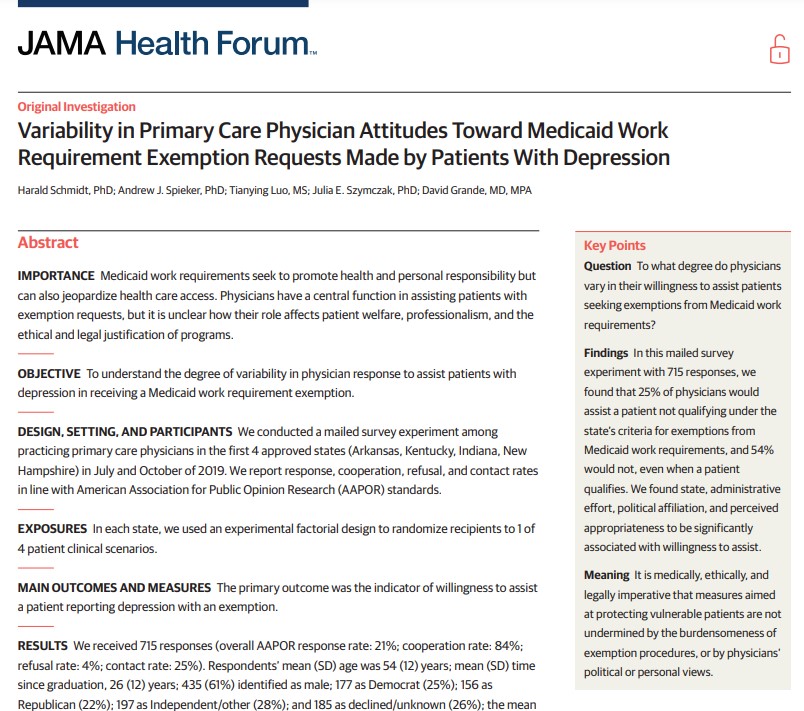Medicaid work requirements seek to promote health and personal responsibility but can also jeopardize health care access. Physicians have a central function in assisting patients with exemption requests, but it is unclear how their role affects patient welfare, professionalism, and the ethical and legal justification of programs. We conducted a mailed survey experiment among practicing primary care physicians in the first 4 approved states (Arkansas, Kentucky, Indiana, New Hampshire) in July and October of 2019. We report response, cooperation, refusal, and contact rates in line with American Association for Public Opinion Research (AAPOR) standards. In this survey study of primary care physicians, we found substantial variation regarding willingness to assist patients qualifying for a work requirement exemption where none should exist. Insofar as work requirements are implemented again, it is critical to proactively identify measures to ensure that patients qualifying for exemptions are not put at risk due to either the burdensomeness of exemption procedures, or physicians’ political or personal views.
